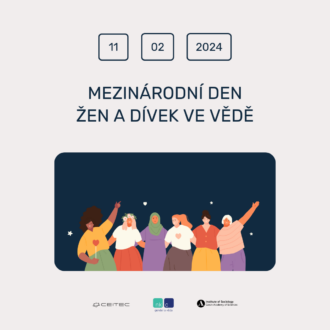
Where does Czech science stand on the issue of a safe environment? We asked women scientists
As part of an online campaign for the International Day of Women and Girls in Science 2024 (#IDGWS2024), we asked Czech women scientists from the humanities and sciences if they feel supported in their institutions. How does the Czech Republic stands in comparison to other countries? Do women scientists feel supported by their colleagues or their parent institutions? What could be changed? What should we take into account more in general?
Alžběta Ressnerová, CEITEC BUT: Czech Republic generally lags behind in addressing sexual harassment
Do you feel supported as a female scientist? Do you perceive certain shortcomings that institutions in general can remedy, even outside your home CEITEC?
I think CEITEC is one of the best places to do quality science in the Czech Republic. In research, I feel the human support of my colleagues and the heads of my lab and institute, who encourage me.
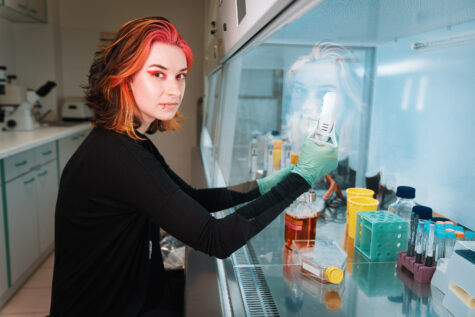
But unfortunately, in the Czech environment, scientists in general have no financial security, no matter what institute they are at because the state support for science and scientists is poor. The situation is so bad now that smart and educated people are leaving science in large numbers because they cannot pay the rent, feed their families, or even just support themselves. I am going through a period of great financial uncertainty myself, and I will probably have to leave the Czech Republic and go abroad sooner than I had planned. When I compare the situation with Germany and the US, scientists don’t have to live from pay cheque to pay cheque and have a higher standard of living.
In Germany and then in the US, I realized that the Czech Republic is generally lagging in dealing with sexual harassment. Here, it’s much more likely to be shrugged off and women often hear „But he didn’t mean it“.
During my studies in Germany, I felt safer and more confident in this respect than when I studied in the Czech Republic. In the US I also felt that it was taken more seriously than here and if anything happened to me, the management would not downplay it. But this is a systemic problem of the Czech mentality.
Bio: Alžběta Ressnerová is currently finishing her PhD in nanomaterials at CEITEC BUT. She is interested in gene therapy, especially in researching transport systems that deliver gene editing tools to the appropriate organ. Alžběta studied molecular medicine at Humboldt University in Berlin and spent a year during her PhD studies at the prestigious Innovative Genomics Institute of the University of California (CU) in Berkeley. She considers her mission to be not only science but also mentoring students and popularizing science. In her spare time, she sews dresses with pockets, sings jazz, and goes for walks with friends.
Klára Marečková, CEITEC MU: The key for me is flexibility, a great team and the consideration of maternity leave in grant applications
What does a safe environment in science mean to you personally? Do you have one? What, if so, makes it so?
Since I have two young children, having a safe environment in science means to me that the time spent on maternity leave can be taken into account in grant competitions for junior scientists. For example, for prestigious grants such as the ERC Starting Grant or the GAČR Junior Star, a woman can apply 7 years, or in the case of the GACR Junior Star, even 8 years after obtaining her PhD plus the time she spent on maternity leave. This helped me to get my current GAČR Junior Star grant as well.
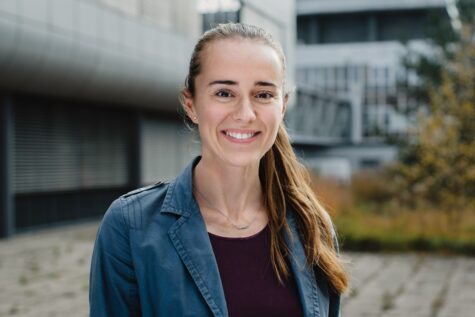
Another important factor that helps me to combine my scientific career and motherhood is a great team that I know I can rely on. For example, during my recent grant from the Czech Health Research Council, they were able to continue collecting data independently during my maternity leave, and then I was able to dive straight into analysis and writing papers when I returned.
As a third key factor, I see the time flexibility of my work, which can be combined with my husband’s work and childcare. Personally, for example, I often work in the morning, spend the afternoon with the children, and then return to work again in the evening when the children are asleep.
I’m so glad that I have the opportunity to do both fascinating research and have time for my family because of these three factors.
Bio: After studying Cognitive Neuroscience and Brain Imaging in the UK, a PhD in Canada and a postdoc at Harvard Medical School, Klára returned to Masaryk University to study the neurobiology of depression as part of her Marie Curie grant. She is currently working at CEITEC MU, where she is researching factors during pregnancy that influence brain development and mental health of the child as part of her GAČR Junior Star project.
Lucie Nepovímová, CEITEC MU: I have been really lucky in my life
What does a safe environment in science mean to you personally? Do you have one?
I have been really lucky in my life and I have always been part of research teams where there was a friendly atmosphere, people sharing their knowledge and enriching each other, which made me feel safe and free to explore. At the same time, I have been in teams where people have been financially rewarded according to their abilities, not according to their gender, and I wish this was the standard everywhere, because finances are also an important factor in feeling secure.
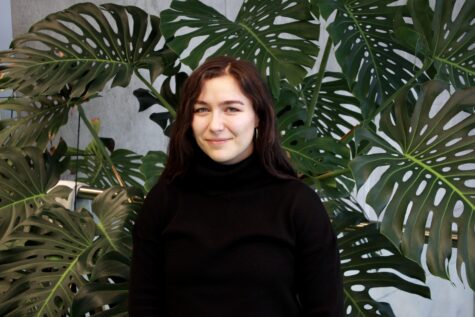
In general, I think that Czech science and society have room for improvement. Although my immediate family has been supportive of my scientific career, I have more than once received raised eyebrows and experienced incomprehension in my surroundings. I’m sorry that society still sees things a bit black and white for women – either career or family, and women (not only scientists) are a bit pushed into this black and white choice, although I believe the situation is slowly changing.
If I were to compare the Czech environment with my British experience, I would highlight the much stricter separation of professional and personal life in Britain. This makes the environment there less discriminatory, but also much less personal and more hierarchical, which I think detracts a bit from research freedom. The sense of security there is given by the strict rules, but at the same time I felt there was more mistrust towards young scientists and much less opportunity for them outside the standard teaching. On the other hand, we could take inspiration from the British when it comes to combining career and motherhood, because I felt that it is not so black and white there and the system is adapted to that.
Bio: Lucie is a young scientist who is currently working on her PhD in Pavel Plevka’s group at CEITEC MU, specialising in structural virology. After completing her BSc in Biochemistry at King’s College London, where she focused on immune cell movement, Lucie returned to the Czech Republic and obtained her MSc in Immunology at Masaryk University. Lucie’s career has been accompanied by a number of awards, including the prestigious Brno PhD Talent.
Marie Heřmanová, Institue of Sociology, CAS: What I need most in an academic environment is some stability
Is there anything that you feel is lacking in a safe environment in a scientific setting?
Personally, I think what I need most in an academic environment is some stability so that I can feel safe. I don’t think there’s enough recognition of how terribly hierarchical the environment is and how much more power people in more senior positions have, how vulnerable a position you put yourself in by not having a long-term contract and so on.
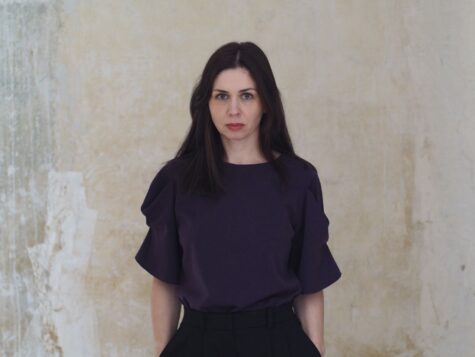
It creates a situation where you feel that you have to do everything and endure everything because otherwise you just won’t have a job – I don’t know how to defend myself against that, I don’t know where the boundaries are of what I have to endure and when I can say that it has been enough. And I wish we would talk more about this. Of course, gender differences play into this, with senior positions being held by men whereas it is women who end up in those precarious positions.
And the other thing that bothers me personally, and I feel is not being addressed, is the pressure to popularise our work, to talk to journalists – but if you are a (additionally still young or young-looking) woman, any public or media appearance is a source of sexist innuendo, you have to listen to opinions about how you look and so on.
This doesn’t happen to men and yet no one addresses the fact that women and men just don’t have equal opportunities in this, that it’s much easier for men to enter the public space. I’ve tried to talk about this a couple of times with people who are very active in the public space as scientists, for example, and none of the men understood what I was talking about or why I was even bringing it up, it was extremely frustrating. I don’t understand why we don’t talk about this, why maybe there isn’t some support for this – or at least an acknowledgment that this problem exists.
Bio: Marie Heřmanová studied social and cultural anthropology at the Faculty of Humanities, Charles University. She conducted long-term field research in the Mexican state of Chiapas between 2008 and 2015, and is currently working on digital anthropology and digital ethnography, researching social media, influencer culture, the spread of misinformation and conspiracy theories in social media spaces, and the reproduction of gender stereotypes in online spaces. In 2021, she was a visiting researcher at the Centre for Research in Communication and Culture at Loughborough University, U
Katarína Rovenská, CEITEC BUT: Safety is being able to afford to pay full attention to science during the day
What does a safe environment in science mean to you personally?
Being able to afford to pay full attention to science during the day. Scientists work with their heads – and if we don’t feel safe, we lose performance. We can put on goggles, gloves, a lab coat, and protect ourselves from the hazardous substances we work with. But safety is also not having to worry about what to wear, how someone is looking at you, not hesitating to ask when something is not clear, not feeling useless or inferior in a room. An idea that you might be embarrassed to voice can lead to a unique innovation.
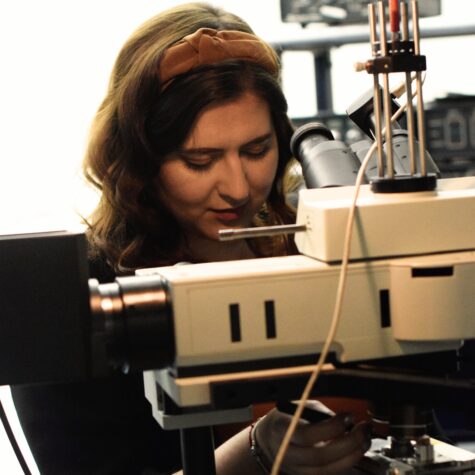
Do you feel supported in what you are doing? Do you feel accepted as a female scientist?
Absolutely. I’m lucky to have a team around me, colleagues, where we keep good relationships and a comfortable environment. As a PhD student, scientist and student representative, I feel that my activity is appreciated and it makes me feel that it all makes sense.
Do you perceive any shortcomings in this regard that institutions in general can remedy, perhaps other institutions besides yours?
In the last two years, many institutions have already opened their arms to the topic of social safety – creating or revising codes of ethics, ombuds positions, points of contact for students and staff. I would say that open arms, although an unquestionable asset, is not enough, that also momentum, active outreach, prevention, education and questioning are also needed. Most of the people who have contacted me as an ombudsperson have said that they had perceived some problems for a long time and were coming for the proverbial last straw. I wish we weren’t afraid to communicate openly with each other on both an institutional and interpersonal level – so that the imaginary cup would not be full and we could be content to give science our full attention.
Bio: Katarína Rovenská is in the fourth year of her PhD studies at CEITEC BUT. In her research on tunable metasurfaces, she focuses on the miniaturization of optical components with tunable functionality using ordered nanostructures, which she fabricates and characterizes herself. She acts as an ombudsperson for doctoral students at CEITEC BUT, and she also defends students‘ rights at the university academic senate and in the national student representation, the Student Chamber of the Council of Universities.
Blanka Collis, IOCB Prague: A safe environment in science is a place where everyone can do their work and express their opinions without fear
What does a safe environment in science mean to you personally? Do you have it? What, if so, makes it so?
A safe environment in science is a place where everyone, regardless of gender, age, sexual orientation, background, health status and other personal characteristics, can do their work and express their opinions without fear of being judged or disadvantaged in any way. That they can concentrate on the content of presenting scientific results in a seminar or conference or coming to an exam without having to consider what to wear and whether to (un)put on make-up, affecting how they will be perceived or evaluated. That they are treated with respect by their colleagues and that they have somewhere to go if the safety of the environment is lacking.
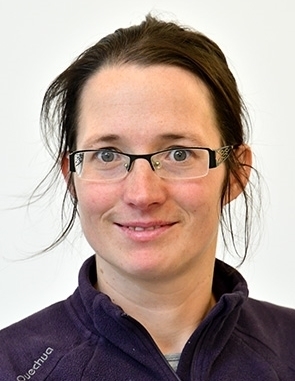
I am grateful that both in the scientific groups here at the IOCB, in previous departments, and in my current position in administration, I have been given this opportunity and I can say that I have always felt safe with the ability to speak openly about any shortcomings. I think it’s partly about the people themselves and how they treat each other, and partly about the culture the institution itself sets. It should be clearly communicated by the leadership that any form of discrimination, unethical behavior and other excesses are not tolerated.
What was the impetus/reason for the IOCB’s Equal Opportunities Plan?
If I am completely honest, the Equal Opportunities Plan was created at the IOCB for completely pragmatic reasons. From 2021, the European Commission has made it mandatory for institutions dealing with European projects to have a Gender Equality Plan. This includes ERC, MSCA and collaborative projects, which are commonly submitted and implemented at the IOCB. So there was no shortage of options and we had to prepare a plan. I moved from the lab to the project office at that time, where we help scientists prepare these and other projects, so I was involved in the process from the beginning.
While we didn’t want to just take it as a necessary evil to meet the requirements on paper, but otherwise it would have had no effect on life at the institution. So we conceived of the preparation of the plan as an opportunity to communicate both outwards from the Institute and inwards to the staff what good things were already happening at the Institute to support women and minority groups, as well as to identify areas where we could work as an Institute.
The position of Equal Opportunities Commissioner was defined within the Plan because there was a need for the Equal Opportunities Plan to not just be a dead and unchanging document, but to be worked with and monitored for implementation and currency. At the same time, I act as a kind of contact point or signpost for colleagues who are confused about who they can turn to on equal opportunities issues. Alternatively, I can direct them to Ethical Proxies (scientific colleagues who can help with personal or ethical issues), to the HR department, to an institutional wellbeing advisor or to a psychologist.
Why are such systemic changes needed?
Systemic changes and a ‚top down‘ push to promote equality for women and men and other marginalised groups is important because institutions are unlikely to pick this up on their own, especially in the Czech environment. A good example is the requirement from the EC to have a GEP at an institution: before it was introduced, there were rather few equal opportunities/gender equality plans at Czech institutions, now there are many more. Europe has subsequently been joined by national grant agencies with a similar condition, including GAČR, TAČR, MŠMT, AZV and others, which shows that leveling the playing field is becoming an important issue in the Czech environment as well.
It is important to note that simplification of conditions for women and other marginalised groups (e.g. availability of childcare for young children, extension of post-PhD time limits for career breaks, etc.) does not mean positive discrimination, but rather a levelling of the starting line, i.e. that women and other minority groups are not inherently disadvantaged by the system. And that’s something we have to keep repeating and explaining.
I personally feel very supported by the management of the IOCB in my position as Equal Opportunities Commissioner: I have the opportunity to participate in Community for Change events where good practice is shared between institutions, I can come up with new ideas that the management of the institution is open to, I can get training on issues, etc.
Do you see any gaps in this respect that institutions in general can remedy?
I think that a lot of intensive work is being done to support women-mothers. It is important to note that this is far from being the only aspect of supporting women in science. It is important that institutions address the issue of gender-based violence and that there are clear processes and points of contact to which victims of such behaviour can turn. Let us also not be afraid to talk about women menstruating and going through the menopause, which are physiologically perfectly normal processes that can have a temporary effect on their performance, but which are sometimes taboo.
At the same time, it is also important to address employees with specific needs (how the institution is accessible, for example, to colleagues with some kind of disadvantage, physical or mental), colleagues coming from abroad without knowledge of the Czech language, or people belonging to LGBTQ+ groups.
Bio: Biochemist who spent part of her childhood as the child of migrant scientist parents, first in Germany and then in England. At a point in her life when she was choosing her own place to work, she decided to study Natural Sciences at the University of Cambridge in England and then went on to do a PhD at the University of Sheffield in the enzymology of proteins involved in DNA repair. She continued in this field as a postdoctoral fellow at the University of Oxford, where she had two daughters a few years later. Her most recent postdoctoral position is at the Institute of Organic Chemistry and Biochemistry (IOCB) in Prague, where she first worked as a postdoctoral fellow in the field of membrane proteins and regulated proteolysis. She subsequently moved to the project office there and now supports other scientists in the preparation of project proposals.
Thank to all scientists who had participated in our campaign. We appreciate the help from CEITEC which participated on this part of #IDGWS2024 campaign.
